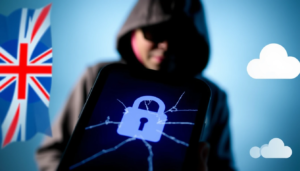In a move that has sparked widespread debate, Apple has reportedly dropped a key encryption feature for users in the United Kingdom following pressure from the UK government. The decision, which comes amid demands for “backdoor access” to encrypted communications, raises critical questions about privacy, security, and the balance between national security and individual rights.
What Happened?
According to recent reports, Apple has decided to disable a highly anticipated encryption feature for its UK users. This feature, designed to enhance user privacy by encrypting messages stored in iCloud, was expected to roll out globally. However, the UK government allegedly demanded access to encrypted data, citing national security concerns.
Apple, known for its strong stance on user privacy, has historically resisted such demands. However, the company appears to have made an exception in this case, leaving many to wonder about the implications for digital privacy and security in the UK.
Why Did Apple Make This Decision?
The UK government has long argued that end-to-end encryption hampers law enforcement agencies’ ability to combat crime and terrorism. By demanding backdoor access, authorities aim to monitor encrypted communications for potential threats.
While Apple has not officially commented on the specifics of this decision, experts speculate that the company may have faced legal or regulatory pressure to comply. This move highlights the ongoing tension between tech companies and governments over encryption and surveillance.
The Impact on UK Users
For UK-based Apple users, the removal of this encryption feature means:
- Reduced Privacy: Messages stored in iCloud will no longer be fully encrypted, potentially exposing them to government scrutiny.
- Security Risks: Without end-to-end encryption, user data may become more vulnerable to hacking and unauthorized access.
- Trust Concerns: Apple’s decision could erode trust among privacy-conscious users who rely on the company to protect their data.
Global Implications
This development is not just a UK issue—it has global ramifications. Governments worldwide are closely watching how tech companies respond to such demands. If Apple’s decision sets a precedent, other countries may follow suit, leading to a potential erosion of digital privacy on a global scale.
Frequently Asked Questions (FAQ)
1. What is end-to-end encryption?
End-to-end encryption ensures that only the sender and recipient can read a message, preventing third parties—including service providers—from accessing the content.
2. Why did Apple remove the encryption feature for UK users?
Apple reportedly removed the feature after the UK government demanded backdoor access to encrypted communications for national security purposes.
3. How does this affect UK Apple users?
UK users will no longer benefit from end-to-end encryption for messages stored in iCloud, potentially exposing their data to government surveillance and security risks.
4. Will this decision impact users outside the UK?
Currently, the change only affects UK users. However, it could set a precedent for other countries to demand similar access.
5. Can users protect their privacy without encryption?
While encryption is the most effective way to secure data, users can enhance privacy by using third-party encrypted messaging apps and minimizing data storage in iCloud.
Also read: The Ultimate Guide to Golden Visa Programs: Unlocking Global Residency Through Investment
Disclaimer
The information provided in this article is for general informational purposes only and does not constitute legal, technical, or professional advice. The situation regarding Apple’s encryption features and government demands is subject to change, and readers are encouraged to stay informed through official sources. The author and publisher are not responsible for any actions taken based on the information provided in this article.
